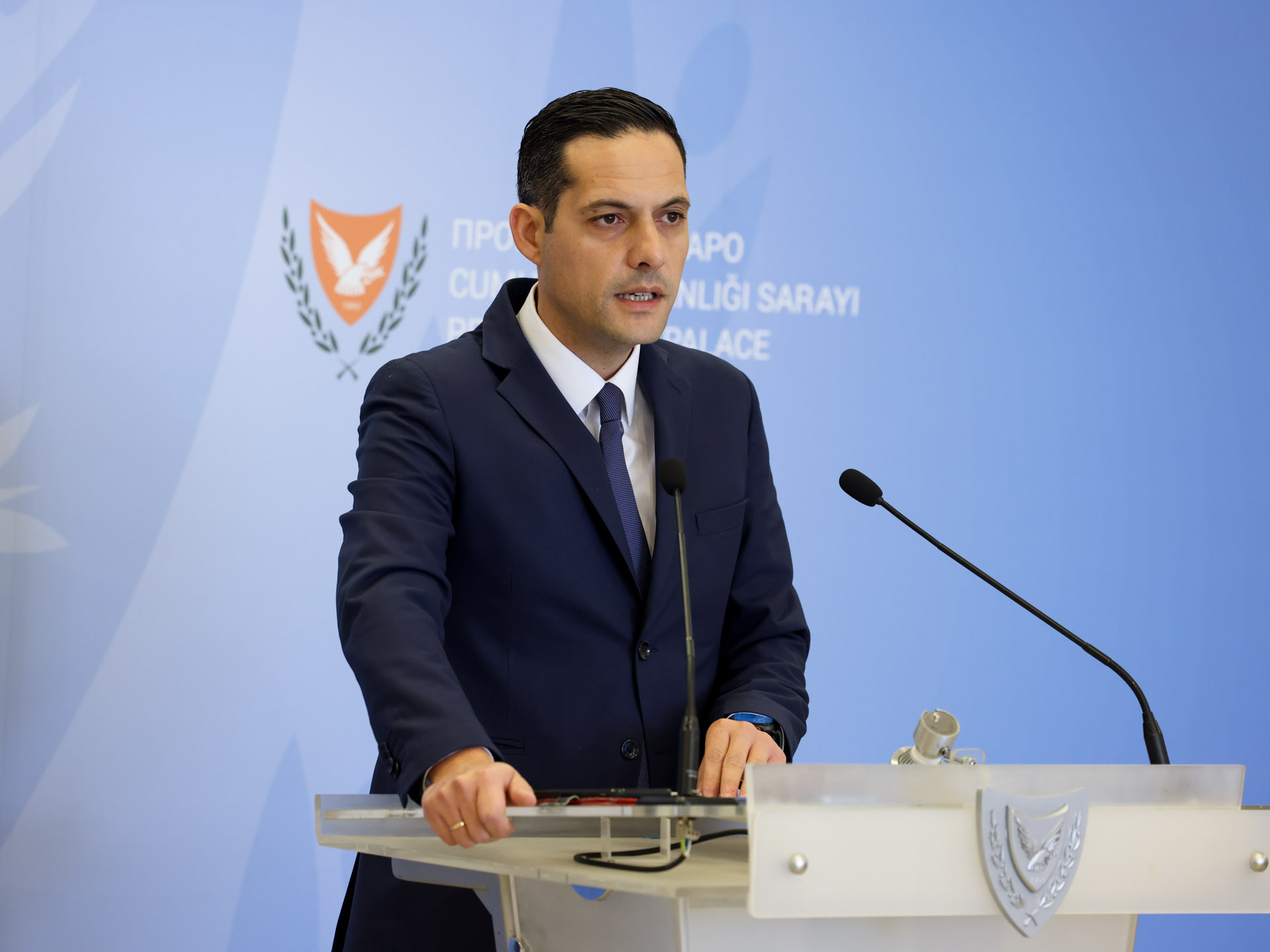The European Union’s “reflexes” on geopolitical issues in the eastern Mediterranean are “not what we would expect”, government spokesman Konstantinos Letymbiotis said on Friday night.
He was speaking to Greek public broadcaster Ert about the possibility of Turkey and the new Syrian government delineating their exclusive economic zones (EEZ) without consulting Cyprus, and stressed that the Republic should be protected by the EU on such matters.
“Cyprus is a member of the EU. The Republic of Cyprus is affected directly and indirectly by developments and unfortunately we have seen in corresponding developments in our region that the EU’s reflexes are not what we would expect, or those that the times require,” he said.
He added that the government has suggested that the EU have a “more active, more leading involvement in the region”, and said this is “precisely because we believe that its practical support for the states of the region can respond to this gap which may have been created in recent years”.
To this end, he was keen to issue a reminder that “any violation of Cyprus’ territorial integrity is a violation of European Union territory”.
“Following the rekindling of Turkey’s interest in its relations with the EU, as well as the interconnection of this process with the Cyprus problem, Cyprus’ territorial integrity is a message that we as the EU must send constantly and with intensity and frequency, so that it becomes clear that international law cannot be ignored,” he said.
His comments come a day after President Nikos Christodoulides had called for a “roadmap of developments that we want to see in Syria”, and warned against the possibility of intervention in Syria on the part of third countries.
He then added that the removal of Assad was “welcomed because it also removed some third countries from their leading role in the region”.
“We should not now see this role being filled by Turkey, which claims to play this role”, he added, stressing the “importance of sovereignty, territorial integrity, the protection of minorities in the country, and the need for an inclusive government”.
“All of this, I repeat, we must put on a roadmap. Depending on positive developments, we will also react positively, as the European Union. This is the message I bring from the states of the region, and in particular from the Egyptian president, the King of Jordan and the United Arab Emirates’ president,” he said.
Asked what the EU expects from the situation in Syria, Christodoulides said the bloc will expect “the protection of the entire population, an inclusive government without exclusions, and for respect for human rights and religious freedoms to be guaranteed”.
These, he said, are “developments on which the future of the country must depend, and on which the assistance the EU will provide will also depend”.
Additionally, he stressed that from Cyprus’ point of view, it is necessary that the EU “moves together with the states of the region”.
He then reiterated that the overthrow of Assad was a “positive development”, but that “the important thing is to ensure what I have mentioned before, to talk about an independent country, one that is not dependent on Russia, nor on Iran, and of course not on Turkey”.
With this in mind, he said he would ask that the EU appoint a special representative for Syria.
“We cannot claim a role without having a representative on the issue of Syria. Developments are happening. We must be ahead, we must be protagonists,” he said.
He added that the situation in Syria is “also linked to the issue of the discussion on Europe’s role in the world”, saying, “if we do not have a role in our neighbourhood, we cannot claim to have a role in any other region”.






Click here to change your cookie preferences